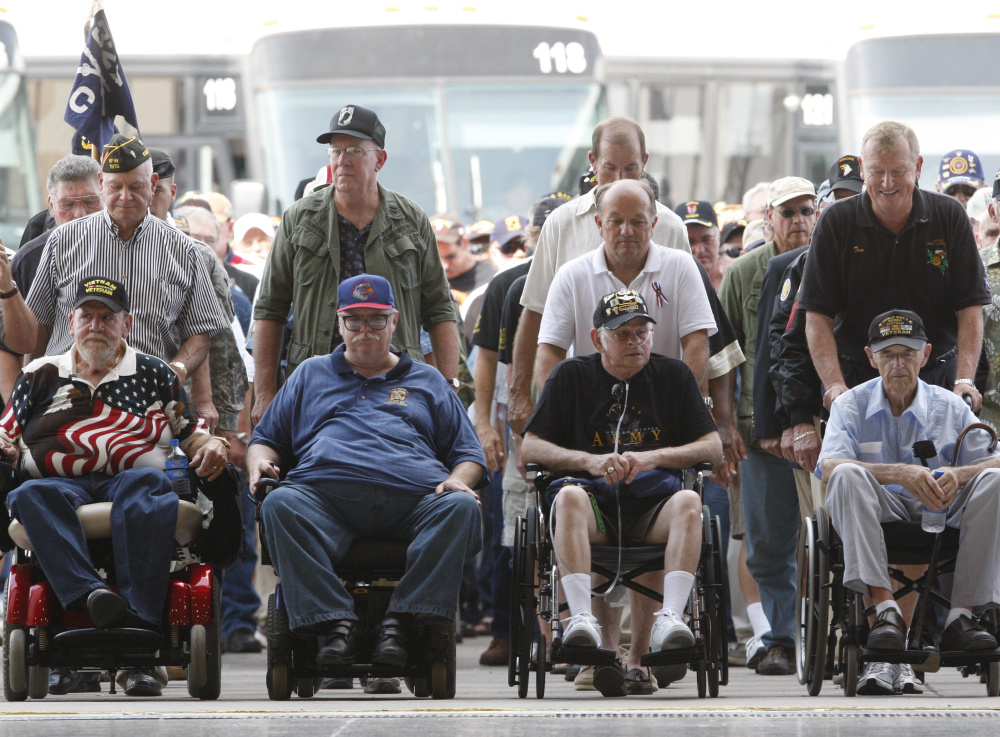Editor’s note: This story is part of an occasional Associated Press series examining the issues at stake in the presidential election between now and Election Day. Read more from “Why it matters.”
THE ISSUE
There are an estimated 21.6 million veterans in the United States. Among them, nearly 9 million are enrolled in health care provided by the Department of Veterans Affairs. About 4.3 million veterans get disability compensation from the VA and nearly 900,000 have been diagnosed with post-traumatic stress disorder.
A 2014 law signed by President Obama aimed to alleviate delays many veterans faced in getting treatment at VA hospitals. Two years later, problems remain.
WHERE THEY STAND
Hillary Clinton has pledged to ensure veterans have access to timely and high-quality health care and vows to block efforts to privatize the Veterans Health Administration, the VA’s health-care arm. She also wants to bolster veterans’ benefits, including education and housing aid included in the GI bill. She would ensure that military sexual trauma is acknowledged as a disability under VA rules.
Donald Trump says he will expand programs that allow veterans to choose their doctor and still receive government-paid medical care. Trump says that’s not privatized care but, “a way of not allowing people to die waiting for doctors.”
Trump also would create a “White House hotline” dedicated to veterans. If a valid complaint is not addressed, “I will pick up the phone and fix it myself if I have to,” Trump said.
WHY IT MATTERS
Lifetime health care is part of the bargain for many of those who put their lives on the line in the armed forces, and the government isn’t holding up its end.
Veterans care has gained prominence since a 2014 scandal in which as many as 40 veterans died while waiting for care at a Phoenix VA hospital. Similar problems were discovered nationwide. VA employees created secret waiting lists and other falsehoods to cover up the delays.
A subsequent law allowed veterans to seek private care at public expense, but the program is limited to veterans who have waited 30 days for an appointment or live 40 miles from a VA health center. Trump would expand the program, calling problems at the VA under Obama “widespread” and “inexcusable.”
Clinton says the VA must retain “the ultimate responsibility” for veterans’ care and promises an oversight board.
Veterans groups are encouraged by the increased focus on the VA, but they say the VA must do more to ensure accountability.
The VA is the largest civilian agency in government. Veterans are also a politically consequential group. Nearly 70 percent voted in 2012, a higher rate than the general population.
Send questions/comments to the editors.


